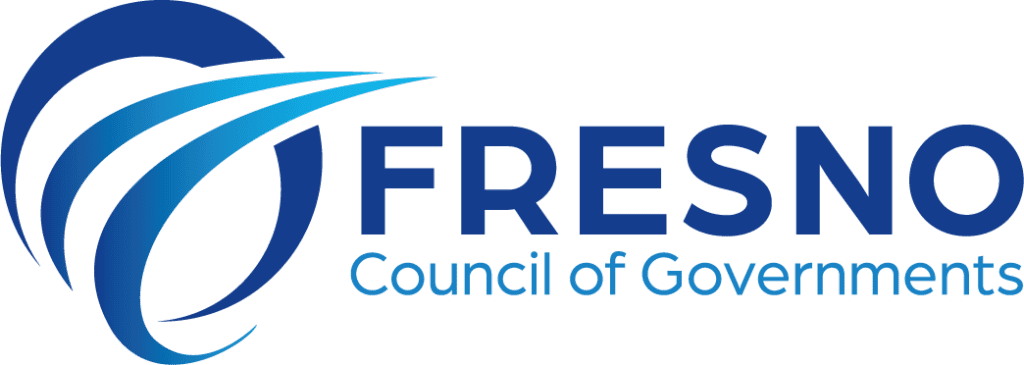Access for All
Access for All is a state funding program to be administered by Fresno Council of Governments (Fresno COG). The Access for All (AFA) Program was established in 2018 by Senate Bill 1376, which directed the California Public utilities Commission (CPUC) to establish a program relating to the accessibility of transportation network companies’ (TNCs, e.g., Uber & Lyft) services for persons with disabilities, including wheelchair users who need a wheelchair-accessible vehicle (WAV).
Fresno COG Regional Early Action Plan (REAP 2.0) Program
The Regional Early Action Planning (REAP) 2.0 grant program was included in the 2021 State budget and seeks to accelerate infill development, reduce vehicle miles traveled (VMT) and increase housing supplies at all affordability levels.
Fresno COG awarded $12.6 million in REAP 2.0 funds to the following projects:
City of Firebaugh – $1.5 million for the Firebaugh Downtown Infill Initiative
The City of Firebaugh proposed to conduct a comprehensive and proactive predevelopment program to foster residential mixed use infill projects for downtown Firebaugh. This City-led effort will be aimed at establishing incentives and development rights for public-private partnerships with the Firebaugh West Hills Community College, affordable housing developers, community-based organizations and other entities. Predevelopment activities include outreach, conceptual designs, entitlements, alternative mobility, market feasibility, infrastructure studies and environmental and site assessments. The City of Firebaugh recognizes that many of their employment centers, health care centers, schools, civic uses, shopping and retail opportunities are located within walking distance of the downtown core area. Their proposed project is entirely focused on facilitating higher density infill, mixed use affordable housing on vacant or underutilized sites.
City of Fresno – $10.3 million Blackstone Betterment: Live, Walk, Work and Ride
The City of Fresno proposed a capital improvement project that implements recommendations for the southernmost segment of Blackstone Avenue as outlined in the Blackstone Smart Mobility Strategy. The majority of these infrastructure improvements include the construction of class IV bicycle facilities, pedestrian and roadway improvements, implementing speed reduction elements and new landscaping elements to help with drainage. These infrastructure improvements will assist in accelerating infill development, furthering affordable housing, and help to reduce vehicle miles traveled (VMT) along and in the surrounding area of Blackstone Avenue and Abby Street between State Route 180 and Pine Avenue.
City of San Joaquin – $800,000 – TMP 18-01
The City of San Joaquin proposed to extend a trail system and construct a new public park as a component of housing development on three parcels at the corner of Elm Avenue and Main Street. The project also includes trail and pedestrian improvements identified in the San Joaquin Mobility and Access Improvement Plan. Several of these improvements will be located along Colorado Avenue to benefit the Fresno Housing Authority’s Colorado Court project, a 114-unit low-income housing project.
REAP 2.0 is primarily administered through the California Department of Housing and Community Development (HCD), working in conjunction with the California Air Resources Board (CARB), the Governor’s Office of Planning and Research (OPR) and the Strategic Growth Council (SGC).
Fresno County Coordinated Human Services Transportation Plan
2023 Fresno County Coordinated Human Services Transportation Plan
2015 Fresno County Coordinated Human Services Transportation Plan
2008 Fresno County Coordinated Human Services Transportation Project Management Plan
FTA Section 5310 Elderly and Disabled Specialized Transit Program
FTA Section 5310 Program Management Plan
FTA Circular 9070.1G – Section 5310
This program’s goal is to improve access to mobility, remove barriers to transportation services and expand the transportation mobility options available for elderly individuals and individuals with disabilities throughout the Fresno Urbanized Area. Toward this goal, FTA provides financial assistance for transportation services planned, designed, and carried out to meet the special transportation needs of elderly individuals and individuals with disabilities.
FTA Section 5316 Jobs Access Reverse Commute Grant Program (JARC)
The JARC program was authorized under SAFETEA-LU, which expired on September 30, 2012. This program has been repealed under MAP-21. However, SAFETEA-LU provisions still apply to funds made available in FY 2012 and prior fiscal years. Fresno COG will continue to administer previously awarded JARC projects. Under MAP-21, JARC-type projects can be funded through either FTA Section 5307 (urban) or 5311 (rural).
The JARC program goal is to improve access to transportation services to employment and employment related activities for welfare recipients and eligible low-income individuals and to transport residents of urbanized areas and non-urbanized areas to suburban employment opportunities. Toward this goal, FTA provides financial assistance for transportation services planned, designed, and carried out to meet the transportation needs of eligible low-income individuals in all areas. Another goal is to implement coordination of Federally assisted programs and services in order to make the most efficient use of federal resources.
Rural and Small Urban – Administered by Caltrans – Caltrans Section 5316 Information – Website
FTA Section 5317 New Freedom Program
The New Freedom program was authorized under SAFETEA-LU, which expired on September 30, 2012. This program has been repealed under MAP-21. However, SAFETEA-LU provisions still apply to funds made available in FY 2012 and prior fiscal years. Fresno COG will continue to administer previously awarded New Freedom projects. Under MAP-21, New Freedom-type projects can be funded through FTA Section 5310.
The New Freedom program goal is to provide new public transportation services to overcome existing barriers facing Americans with disabilities seeking integration into the workforce and full participation into society. Lack of adequate transportation is a primary barrier to work for individuals with disabilities. New Freedom also seeks to expand the transportation mobility options available to person with disabilities beyond requirements of the Americans with Disabilities Act of 1990 (42 U.S.C. 12101, et seq.). The definition of “new service” is any service or activity that was not implemented or operational before August 10, 2005.
